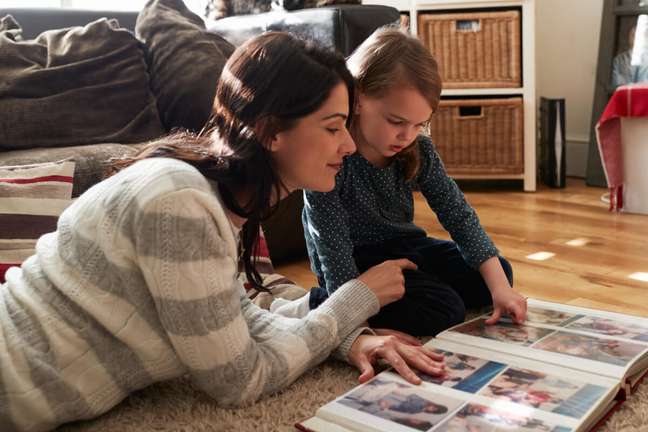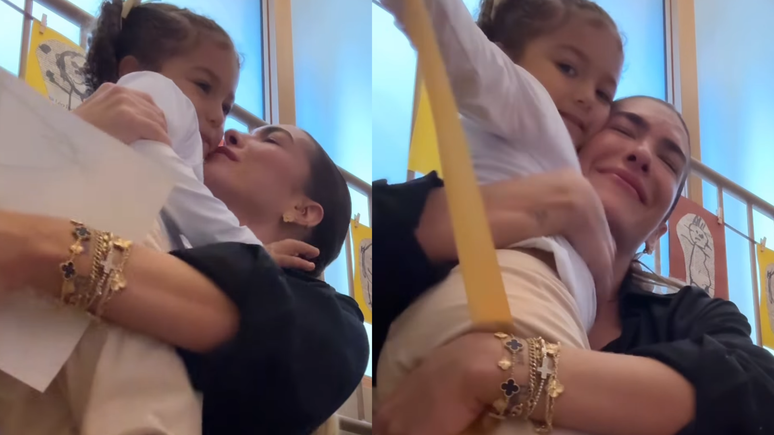Reliving memories in a positive way is important to prevent the past from preventing new stories.
Have you ever wanted to live in a memory? Who awakens good feelings and who is so, so beautiful, to the point of always finding yourself between a sigh and the passage of time? I have very special memories, which I keep in a discreet drawer, separate in my heart.

When I’m sad, a little distant from myself, I need to remember my trajectory and strengthen myself based on what brought me here, I fall back on some of these memories. Like the day I strolled the streets of Paris, the night I graduated from journalism class, the precious, funny, short moments next to my father.
Along with every memory comes a light, subtle, delicious nostalgia, one of those incapable of hurting. I give myself the right to feel and, even if I want to relive some of these very amorous situations just for the pleasure of the senses, I don’t stay there, forever trapped in what happened. I use this nostalgia only to recognize myself again and take refuge in places that strengthen me and push me to reach new spaces in the present.
What is nostalgia?
Psychoanalyst Renan Regueiro explained to me that “nostalgia points to a wish of something that no longer exists”. Although the two are so close in their meanings, nostalgia carries a certain suffering because, generally, it is accompanied by a desire to remain in our past histories, thus bringing a certain dissatisfaction with the present. .
In other words, when nostalgia isn’t healthy, we miss what we’ve already experienced so much that we freeze in time, thinking that nothing else will satisfy or cheer us up. And we stayed there, removing those memories. “That is why it is important for the person to process that past they were trapped in. Why is it still there? What does that experience need to be talked about and interpreted in a therapeutic process so that the energy invested in that nostalgia can be released and placed in the present?” observes Keila Bis, also a psychoanalyst.
nostalgic effects
Revisiting our memories isn’t exactly bad. I usually say that when there is nostalgia it is a sign that we are living through important moments that have marked us in some way. The complicated thing is when you get so involved in what has been to the point of not being able to live the present to its fullest. After all, a nostalgic, very attached to what he’s been through, doesn’t make “good use” of his memories, the psychoanalyst Renan told me.
He points out that excessive nostalgia and this fixation on the past are directly related to the difficulty that we human beings have in dealing with reality, with the present. According to him, we always compare things and try to relive some situations in our lives, even if unconsciously.
“This desire to return is something that is part of us. We always look for a more welcoming, safer place,” he told me. And she also reminded me that we only had this kind of security once in our lives, when we were still in our mother’s womb. and a little inside childhoodwhen we felt happier, more cared for and less responsible for what we did.

Affective memories are part of the maturation process
However, we cannot recognize ourselves as adults if we remain forever trapped in the idea and experiences of the child we once were. “Affective memories are part of our psychic construction. But I’m not that boy anymore. And I need to understand myself for the man I am today,” explains Renan.
This maturation process is something we all need to do to avoid becoming infantile. “That security of childhood, of caring for family, has played a part in our journey. But, as we enter adolescence and adulthood, it is imperative that we leave this place to take responsibility, to feel capable of caring of our lives. . That makes us powerful,” Keila points out.
That is, using the past as a lesson, and not as that only place of desire, which holds us back to memories and prevents us from looking at the new. After all, as Renan also said, “it is healthy to keep our experiences in their place, composing who we are”.
Embracing the past is important for the present
Remembering is as healthy as it is essential. We are made from our memories, they are part of our history. Dealing with nostalgia as something good comes through the experience of extract from memories possible lessons learned and understand that it is neither possible nor desirable to go back in time. “We can look at it, be clear about our history, but understand that it is not possible to live in that place. I welcome this past and give it a place in my present, so that I can follow myself, walk and understand myself with reality, which is today “, completes Renan.
I hope to relive the same sensations of the past
Everything we have talked about so far becomes even more evident when we look at our relationships, whether they are in love, with friends, with work or even with some object. Has it ever happened to you? Have you ever found yourself comparing one relationship to another, always preferring the one that ended? If we expect to relive today the same feeling and the same love of years ago, we close ourselves off and deprive ourselves of living good relationships in the present.
“Many people expect the second date to be the same as the first. That the kiss is the same, that living together is the same. And it never will be. Every time we try to repeat it, we fail,” analyzes Renan. And this attachment to the repetition of an already experienced pleasure goes against the broad experience of living. “If we are looking for this repetition, we deny the diversity, the plurality of experiences, people and places to which we have access. The new is a gift that life gives us. Repetition does exactly the opposite”, explains Keila.
Sensations brought by nostalgia
In addition to vivid scenes, smells and tastes are also a way to understand nostalgia as something positive. “I remember an aunt who made an amazing raincake when I was a kid and I have great memories with that,” Renan confesses. About two years ago, he met his aunt and told him of this delightful affection. So she went to the kitchen to relive her nephew’s memories and she fried her dumplings. “It’s not just that taste experience, but it’s the healthy way I find to bring some of that affective memory I have to reality.”
This is also the path that Ana Laura Faria has found keep the memory of his childhood and his family. Designer by training and cook by passion, he founded Julieta, a brand of handmade biscuits with the taste and aroma of his grandmother’s house. Recipe? It was handed down to her by her great aunt, who always made the famous cheese and guava biscuits at family gatherings. Ana remembers those encounters and the smell that always invaded the whole house, awakening desire in everyone, especially the children. “It was from there that I created Julieta, inspired by the affection and care of my great aunt.”
In the traditional recipe, Ana has added a lot of parmesan and a few little secrets that she doesn’t share with anyone. The smell of cookies wafts through the street of a residential neighborhood in Belo Horizonte and anyone who passes in front of the door can’t resist: she ends up stopping to ask what she is. Some guess right away and even remember their childhood. “My idea is to awaken sensations, memories and see people’s reaction to the flavour. This motivates me,” explains Ana.
Rephrasing nostalgia is a step towards the future
Discovering what moves us and reframing our memories is perhaps the biggest step we can take to cultivate a healthy nostalgia. But, of course, we won’t always be able to access these fields of self-knowledge within us on our own. For this, Renan recommends the willingness to face our story, if possible, together with professional help.
“Doing a good read or talking to a friend can be very meaningful. I like to think that the self knowledge it always depends on an interlocutor. Otherwise, we get stuck in the same thought and we don’t listen.” Each therapeutic process helps us to better understand who we are and to listen, remember and work on what we live. “Pains stop hurting so much and we give them a new place . This is also a bit of making peace with our history and our losses,” she says.
It’s not wrong to remember or miss you. It’s up to us to make good use of the past, build new memories and balance emotions in the present, moving forward. And remember the advice, disguised as a song, in Gilberto Gil’s voice: “the best place in the world is here and now”.
Text originally published in the journal Vida Simples (Edition 248)🇧🇷
By Deborah Gomes
🇧🇷The best content in your email for free. Choose your favorite Terra newsletter. Click here!
Source: Terra
Ben Stock is a lifestyle journalist and author at Gossipify. He writes about topics such as health, wellness, travel, food and home decor. He provides practical advice and inspiration to improve well-being, keeps readers up to date with latest lifestyle news and trends, known for his engaging writing style, in-depth analysis and unique perspectives.







